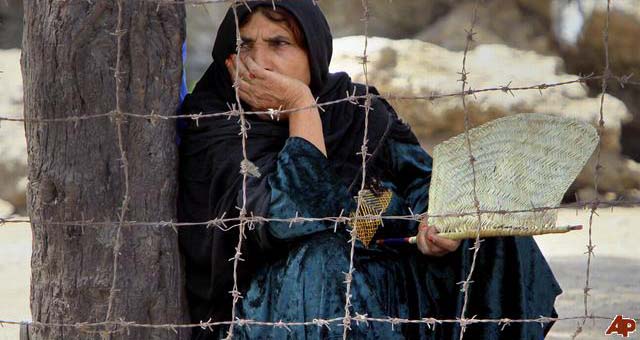The three decades of war which led to insecurity, poverty and sectarian violence, was the factor which forced many Afghan people to take refuge in foreign countries. To survive the jeopardy of war, Afghan people took the risk of migrating to many foreign countries. Moreover, some of the emigrants hopes were crumbled by drowning in stormy oceans or being shot dead at the borders for illegal entry. Furthermore, the Afghan migrants are in the grip of many challenges in those countries. In other words, they suffer from educational deprivation, racial discrimination, ethnic conflict, abolition of cultural continuity, and many injustices which are mostly against ethnic minorities in any countries.
One of the great worries of the Afghan migrants is the dissonance between their culture and foreign culture. Normally, the culture, tradition and norms of minority groups will be absorbed by the cultures and customs of majorities. Moreover, the folklore of the majorities will dominate the norms and values of minority groups. Hence, the national identity and cultural values of Afghan immigrants are in great danger of obliteration.
A friend of mine, who lived as an asylum-seeker in Australia for almost three years, is back in Afghanistan with the intention of not returning to Australia. Commonly, the culture of a country is based on their religious beliefs, and the great worry of my friend is their cultural values. Even though my friend judges ethnocentrically, views the cultural values of others with the comparison of his own cultural norms and values, however, he believes that the so-called freedom and democracy of some countries are no more than hollow slogans especially freedom of speech ; nobody is supposed to breathe a word which is against the political formula of those countries. Moreover, he adds that human rights are being easily violated and the human’s dignity is not considered as it is supposed to be. He had much painful and secret turmoil to express; however, he was not willing to reveal much.
According to sociologists, to narrow the rift between majority and minority groups, one of the three ways is supposed to be experienced, which are assimilation, melting point and cultural pluralism. Assimilation means that when the immigrants enter a country, will have to give up their tradition and custom and adopt new attitudes based on the values and norms of majority group. Assimilation wants that immigrants should change their clothing, way of life and their cultural views so as to be absorbed in new social discipline. Second is melting point which means that instead of elimination of immigrants’ tradition in favor of the traditions of majority groups, the traditions of both groups will have to be combined to make a new cultural samples and evolutionary changes. Many believe that melting point is the most favorable process of ethnic variety that the immigrants’ traditions involve in shaping social environment rather than being eliminated. Moreover, combined manners of cooking, model, music and architect are the result of fusion of cultures. The last model is cultural pluralism. This is the best way to support creating a real plural society wherein equal validity and significance for several subcultures be recognized officially. Ethnic varieties will have to be respected as vital elements of the all nation’s life.
Hence, Afghan people who immigrate to foreign countries, mostly their culture is exposed to assimilation which seems a bitter pill for some. Of course, those who are strongly tied to their culture, it is highly difficult for them to adopt a new lifestyle and break their ties with their own culture and tradition. In other words, they do not want to lose their identity, culture and beliefs in return of economic facilities or security. They emigrated from their countries to be safe and facilitated but not at the cost of their moral values and religious beliefs. Thus, it is a great matter of concern for many Afghan migrants.
In addition, racial discrimination is one more factor which causes Afghan migrants to worry. Mostly, many multi-national countries wherein several subcultures exist are in grip of racial tension. As a result, apartheid, a system of racial segregation, is a good example, which was enforced through legislation by the National Party(NP) governments, who were the ruling party from 1948 – 1994, of South Africa, under which the rights of majority black inhabitants of South Africa were curtailed and Afrikaner minority rule was maintained. Under apartheid, Blacks suffered all injustice regarding education, economy, health services, etc. Ultimately in 1990 President Frederik Willem de Klerk began negotiations to end apartheid, culminating in multi-racial democratic elections in 1994, which were won by the African National Congress under Nelson Mandela. Hence, there are multi-national countries along with subcultures which are experiencing racial tensions bitterly that mostly lead to chaotic situations. Moreover, the issue of White and Black is one of the major factors which led to racial discrimination and roots deep in European cultures. Blacks were mostly treated unfairly by the Whites in Europe, Africa, and America.
Even though, Afghan immigrants are deprived of many priorities which are considered for a citizen, moreover, they are scapegoat for economic decline of the countries. In other words, besides being deprived of going to educational institutions, etc, they make maximum efforts in return of minimum payments. To our chagrin, they are also insulted not only in non-Islamic countries but also in Islamic countries.
Within the last decade of democratic experience, Afghan officials did take any effective step for the Afghan migrants, especially for those who live illegally in the neighboring countries. Afghan government will have to prepare the ground for returning of the illegal migrants who were forced by instability and economic strain to emigrate from the country. Furthermore, many more Afghan people have emigrated from the country within the last decade which shows insecurity, poverty. Hence, the last decade of so-called democratized government, could not solve any challenges of Afghan people, such as security crisis, economic strain, drug dealing, administrative corruption, etc.

